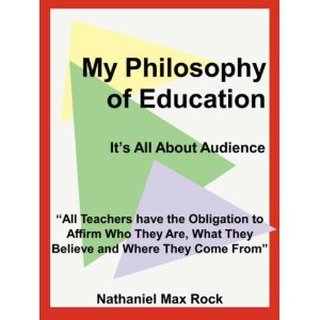The historical past of philosophy of schooling is a vital source of concerns and issues—as is the historical past of education itself—for setting the intellectual agenda of latest philosophers of schooling. Alternatively, a fruitful topic for reflection is whether a extra self-essential method to philosophy of training, even when at instances it seems to be pulling up its own roots for examination, may show more productive for eager about education, as a result of this very tendency towards self-criticism keeps fundamental questions alive and open to reexamination.

Second, there is a corpus of labor somewhat resembling the first, but where the arguments are tighter, and where the authors normally are individuals of some distinction whose insights are thought-upsetting—possibly as a result of they have a level of familiarity with some branch of educational exercise, having been academics, school principals, religious leaders, politicians, journalists, and the like.
Although Rousseau never supposed these instructional details to be taken actually as a blueprint (he noticed himself as creating and illustrating the basic principles), over the ages there have been makes an attempt to implement them, one being the famous British free school”, A.S. Neill’s Summerhill (cf.
This form of system-building across epistemological, moral, and social/political points is what the great philosophers do, and it’s revealing that for them philosophy of training was not often seen as a definite space of inquiry however merely the figuring out in observe of implications for teaching and studying that were derived from their bigger positions about fact, value, justice, and so forth.
Medically, this is dubious, whereas the academic model—forcing students to work, until they exit the system, on matters that do not curiosity them and for which they haven’t any facility or motivation—has even less benefit. School is seen as an establishment that works with youth to improve society or assist students understand their individuality.
